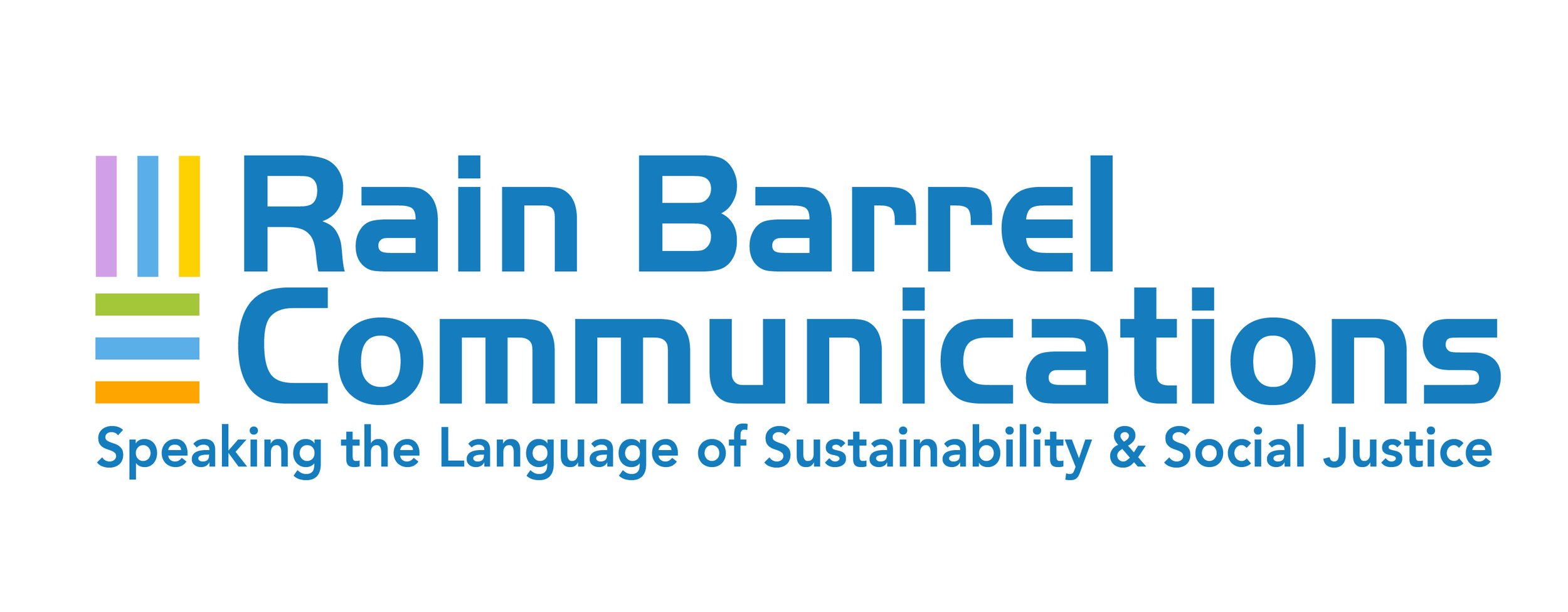Nhi Tong: On Social Media, Diversity and Train Trips
By Paul Hoeffel
Nhi Tong has worked with Rain Barrel since she first contacted us through Paula Claycomb, one of our veteran Associates, after reading a publication by Paula on social and behavior change communication for UNICEF. After finishing her studies in Communication Arts and International Communication at St. John’s University in New York, Nhi combined her fascination with development communication with Rain Barrel’s need for a revamped website and heightened digital presence. It was a match from the get go.
Rain Barrel’s co-founder Paul Hoeffel recently talked to Nhi, who continues to work with us from Hanoi, her hometown, as our Web and Social Media Manager.
Paul Hoeffel: Over the past three years you have helped Rain Barrel overhaul its website and establish a social media presence that has enabled us to reach a pretty rarified audience.
Nhi Tong: It was a collaborative process, a co-creation that made it so special for me. I am a lot younger than the management team and brought a skillset to match their vision for how Rain Barrel wants to position itself in the digital landscape. You all trusted me to try to realize that vision.
PH: Yes, we wanted to identify our audience and become more visible online. What was your strategy?
NT: After shaping Rain Barrel’s vision and identity with a completely new website, we focused on producing content to promote our work and identifying resources that are relevant to the social and behavior change communication community. For example, we recently developed a learning section series where we could provide our associates and wider audience with a platform and opportunities for discussion. We also diversify the type of content we share to include not only long written pieces, but also short interviews with our associates, infographics and questions for community engagement on social media.
PH: I remember that we were not getting any meaningful traction with our Facebook page. It was frustrating.
NT: As we started keeping track of our website and social media analytics to understand our followers better and measure how our content is performing, we strategically dropped Facebook and switched to focus on Linkedin where we can better reach and engage people in our niche audience. We have been more vocal and consistent online – it’s a big shift.
PH: After ten years of study and work in New York, you recently returned to Vietnam. Have you experienced any culture shock?
During college years in New York. Photo credit: Nabeela Baig
NT: I have only lived in New York and Hanoi, so I am speaking from my experience only living in these two cities. In the US, I think when reaching 18, you are generally encouraged to become independent; setting up a life apart from family is celebrated as a rite of passage. I experienced that shock and later exhilaration when moving across the ocean a decade ago. I learned how to be on my own for the first time, which was both intimidating and empowering. Now I am navigating a homogeneous, community- and family-oriented world again, which is comforting yet at times foreign to me. After ten years abroad, I have changed and my country has also changed. There is inner friction as I adapt, wanting to honor my roots yet resisting letting go of parts that make me who I am.
PH: You mentioned that you are a “third-culture kid”. What do you mean by that?
NT: While I grew up in Hanoi, I think the formative years in New York profoundly influenced my hybrid identity and planted roots for my love of different cultures and ways of life. I am seen as Westernized and Americanized by my own family, while in New York, I was tagged with the “immigrant” identity which I didn’t relate to. Both make me feel misunderstood and unseen. And now, I am afraid to adapt, to integrate too much of myself because I don’t want to let go of the parts that I left in New York. For me, it was daily adventure to go out and encounter the vibrant diversity – an open-mindedness – that makes New York irresistible. At home, there are of course cultural nuances but we all share the same fundamental identity, a strong thread that connects all of us.
PH: When I mentioned that I was planning to take a train trip out west, you said “Been there, done that”. Why train travel?
Sunrise in rural Vietnam during her recent North-South train trip. Photo credit: Nhi Tong
NT: After I started working, I set aside money from the first months of my salary to get an Amtrak rail pass and took a long solo trip around the country. I saw changing seasons and diverse landscapes but most of all I learned about people, their stories and differences. It was a humbling experience to meet people from so many walks of life, just by sitting at a train compartment. When I returned to Vietnam, one of the first things I did was taking the train from North to South. While different from my experiences in the States, it was also an eye-opener, a place to see people and understand my country. I want to globalize my travel; I can create my own New York City. But for now, the Internet is my comfort, knowing that I am still connected to you all at Rain Barrel and friends in New York and around the world.


